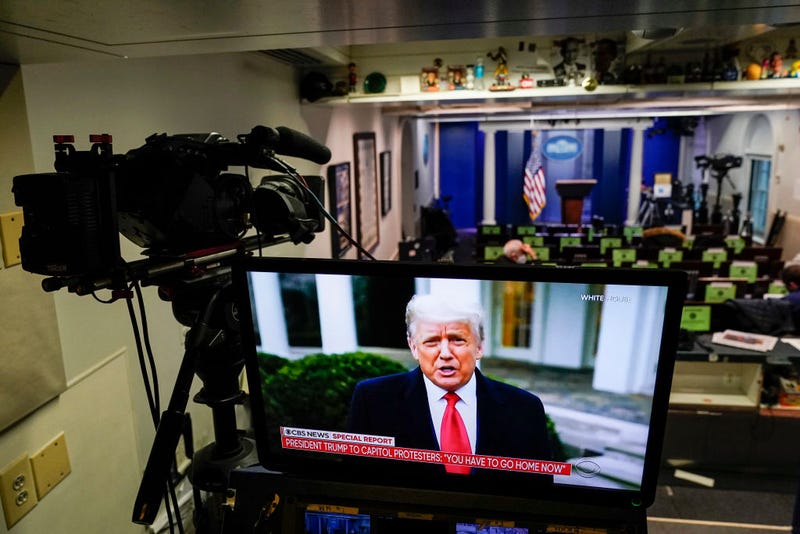
Attorneys from the U.S. Department of Justice wrote in an amicus brief filed Thursday that former President Donald Trump’s claim of absolute immunity regarding the Capitol riot should be denied.
“The district court’s denial of absolute immunity should be affirmed,” said the conclusion of the brief.
During the Jan. 6, 2021 Capitol riot, protestors disrupted a joint session of the U.S. Congress in the process of affirming the presidential election results for President Joe Biden, who beat Trump in the 2020 election. Trump held a rally in Washington D.C. that same day where he made unfounded election fraud claims, and Trump supporters have been arrested for participating in the fatal riot.
“Trump’s lawyers have argued he was acting within the bounds of his official duties and had no intention to spark violence when he called on thousands of supporters to ‘march to the Capitol’ and ‘fight like hell’ before the riot erupted,” according to NBC News.
The former president also made election fraud claims in a video addressed to the protestors on Jan. 6. He told them to go home, and that “we love you, you’re very special.”
As of last month,985 people had been arrested for participating in the riot, including 319 who face criminal charges. In November, Attorney General Merrick Garland appointed a special counsel to oversee two criminal investigations: one regarding whether “any person or entity unlawfully interfered with the transfer of power following the 2020 presidential election or the certification of the Electoral College vote held on or about January 6, 2021,” and another regarding documents found at Trump’s Mar-a-Lago estate in Florida.
Over the summer, Marist poll results found that most Americans blamed former Trump for the Capitol riot last year, but didn’t think he would face criminal charges for it.
“Look, no person is above the law in this country,” Garland told a reporter at the time.
In the Thursday filing, attorneys addressed suits, from members of Congress and Capitol Police officers who “have brought civil damages claims against former President Trump arising from injuries they sustained during the assault on the Capitol on January 6, 2021,” and in particular, respond to a court “request for its views regarding the former President’s assertion of absolute immunity.”
“Nixon v. Fitzgerald establishes a rule of absolute immunity for the President’s official acts,” said the brief. “It is not a rule of absolute immunity for the President regardless of the nature of his acts.”
NBC News noted that the brief “carefully avoids taking a position on whether Trump is actually liable for causing the riot, civilly or criminally,” and focuses on the absolute immunity issue. Additionally, CBS News said the DOJ “notably did not take a stance on whether presidents running for reelection can be held responsible for conduct carried out strictly in the campaign arena.”
However, the filing does appear to uphold a previous decision from D.C. District Court Judge Amit Mehta, who ruled around a year ago that Trump is not immune from lawsuits.


